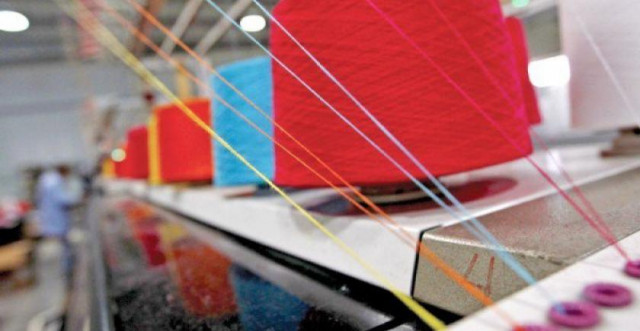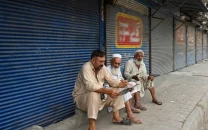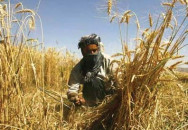Textile sector calls for opening entire value chain
Industries having export orders have been allowed to operate only

Representational image. PHOTO: REUTERS
In a statement on Thursday, Mazhar said Aptma appreciated the efforts and measures taken by the government of Sindh to contain the spread of the virus and assured it of complete cooperation in the fight against Covid-19 pandemic. “The textile industry of Sindh, which was granted permission to resume operations recently, has already adopted all precautionary measures prescribed in the standard operating procedures (SOPs) for preventing the spread of coronavirus,” he said.
“So far, the provincial government has permitted only those textile industries to restart work, which have export orders and have residential colonies in their premises.”
Mazhar held the view that the permission to only a few industries would not bring desired results for the economy until textile sub-sectors such as weaving, knitting, stitching and processing were also given permission to resume production.
He argued that the sub-sectors provided intermediary material to complete the business cycle of the textile export industry, hence, it was vital for them to resume operations. “In the present situation, the industry is not even running at 50% of capacity,” he revealed.
Mazhar said in the wake of lockdown in Sindh, the industry was facing severe liquidity problem due to which it was not in a position to even pay utility bills and salaries of employees.
“The only solution to tackle this situation is to allow the entire business cycle of the textile industry to function across the entire value chain including the downstream industry,” he said. “If this is not done, then it would be too late for us to recapture export market and keep our employees.”
He reminded the provincial government that Karachi produced about 52% of the country’s total exports and the lockdown was causing heavy losses to industries in the city. He recommended that in order to save Karachi, the government needed to adopt a smart lockdown policy allowing the complete textile value chain to operate while abiding with the SOPs.
Published in The Express Tribune, May 8th, 2020.
Like Business on Facebook, follow @TribuneBiz on Twitter to stay informed and join in the conversation.



















COMMENTS
Comments are moderated and generally will be posted if they are on-topic and not abusive.
For more information, please see our Comments FAQ